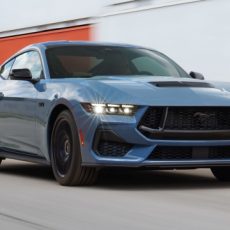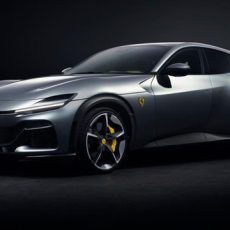Contrary to most scientific achievements, some of the advanced developments in this field are visible in the developing or less developed countries. It is a classic example of necessity being the mother of invention. People with meagre access to energy fuels will always work harder to devise new methods than those who own V8s and V10s. However, a UK-based company, GENeco, has recently modified an engine sourced from the iconic VW Beetle, which has forced us to change our perception of alternative fuels.
In this modification exercise, the Beetle’s two-litre, four-cylinder engine was converted to run on  biogas. The car still uses regular unleaded petrol to crank up, switching to methane automatically once it gets running. If, by any chance, the methane tank runs out, it reverts to using good old petrol for fuel. Either way, it is capable of nudging 185 km/h, which is no mean achievement.
biogas. The car still uses regular unleaded petrol to crank up, switching to methane automatically once it gets running. If, by any chance, the methane tank runs out, it reverts to using good old petrol for fuel. Either way, it is capable of nudging 185 km/h, which is no mean achievement.
The Bio-Bug is capable of travelling for 16,000 kilometres using the output (for lack of a better word) from just 70 houses over a one-year period. That equates to 8.52 km per cubic metre of biogas. Now, a single sewage treatment plant is capable of generating about 18,000 million cubic litres of biogas per annum. So, theoretically speaking, a single sewage treatment plant could keep vehicles running for roughly 1,526 lakh kilometres per annum.
Some information about the company now. The name GENeco might not ring a bell here, but, apparently, they are one of the UK’s largest sustainable energy companies specialising in waste treatment sites and other renewable sources of energy. The company is owned by Wessex Water, a water supply and sewage utility company operating in parts of south-west and southern England.
Explaining the rationale behind Britain’s first methane-powered car, Mohammed Saddiq of GENeco said, “Earlier gas wasn’t clean enough to fuel motor vehicles without affecting their performance. However, by using the latest technology our Bio-Bug drives like any conventional car and, what’s more, it uses sustainable fuel. If you were to drive the car yourself, you wouldn’t know it was powered by biogas as it performs just like any conventional car. It is probably the most sustainable car around.” As for the firm’s choice of the VW Beetle, he said, “The choice was inspired by the students who took part in a  workshop. They thought it would be appropriate that the poo-powered car should be the classic VW Beetle Bug, because bugs naturally break down waste at sewage works to start the treatment process which goes on to produce the energy.” Brilliant association, that.
workshop. They thought it would be appropriate that the poo-powered car should be the classic VW Beetle Bug, because bugs naturally break down waste at sewage works to start the treatment process which goes on to produce the energy.” Brilliant association, that.
Vehicles like the Bio-Bug are not exactly novel. However, as Mr. Saddiq explained, this is the first time that this conversion has been carried out without adversely affecting the car’s performance. And, yes, most electric cars seem downright inefficient compared with this one!




